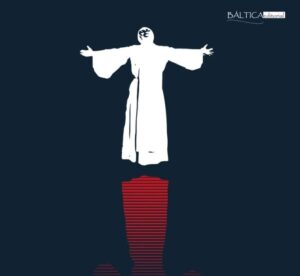
Original Language: español
Year of publication: 2025
Valoración: Between recommended and okay
A love story without moral.
Every time I read self -fiction, I remember Barbet Schroeder’s documentary The Charles Bukowski Tapes. In one of the episodes, a friend claims Bukowski to have portrayed him as a violent drunk in one of his stories, while he himself showed himself as a magnanimous being. “It was completely the other way around,” his friend rebuked him. Bukowski responded quietly, as if it were an obvious: “In my stories, I am always the hero.” I think he was right. Reading self -fiction (and not talking about writing it) is an act of faith. Under these conditions, I see unnecessary consider self -fiction as an independent category; Let’s simply call him fiction.
In Next time…Paulina Flores tells us Javiera’s experience (it would be very greedy from me not to derive the place of alter ego) As Chilean immigrant in Barcelona, first as a student, then as undocumented unemployed. In addition to what one would expect (cultural clashes, isolation, nostalgia, etc.), a love story is presented to us. But love love, of those who end up in tragedy and death; You know which one. It is not just an ancient love: Javiera ventures into the polyamor, which, considering that it comes from the Third Catholic world, is an adventure for failure. In addition, it relates to a catalog of characters, each more extravagant than the previous one, which enriches its world with deeply contrasting ideas with respect to its previous life.
The novel is brief, entertaining, and even has revealing moments. It is the second novel by Flores and, although its youth is noticed (references to millennial pop culture, reflections of a formation novel, a casual tone), it also reveals a mature writing, although its own style is not yet distinguished. (For some reason, in the description of the book you read “a voice halfway between Violeta Parra and Bad Bunny”; I don’t know if that is good or bad).
Finally, I would like to mention some repairs:
1. I understand that everyone discovers the world in their own way is due, but I would expect an immature, impulsive protagonist, to discover the world and passionate love, be a teenager or a young woman in their veins. That the protagonist is 31 years old, it was somewhat anticlimatic. In addition, high school adventures are reported, which leaves a hole in the curriculum of more than ten years (I suppose the writer was too busy with the studies and work so that something interesting happened in that period).
2. In the absence of a better adjective in Spanish, the plot was, at times, too much edgy: exalted passions, murder and suicide attempts that exceed my personal taste.
The next time I see you, I kill you It is a visceral novel rather than confessional, which moves between love drama and the search for identity. Although its protagonist and decisions can generate some resistance, Flores manages to build a powerful and honest narrative voice. Not everyone (I would say) identify with the emotional whirlwind that Javiera crosses, but few will be indifferent to the intensity with which their story is told. A risky bet, with its successes and excesses.
Source: https://unlibroaldia.blogspot.com/2025/07/paulina-flores-la-proxima-vez-que-te.html


